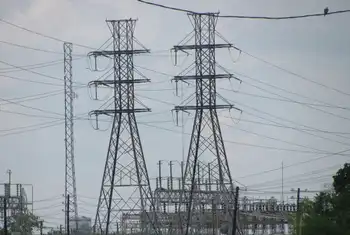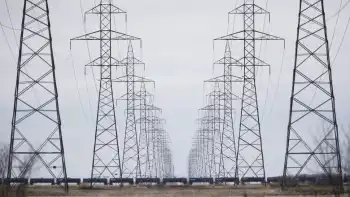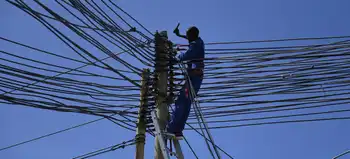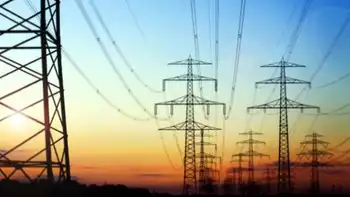Invest in Hydropower to Tackle Coronavirus and Climate Crisis Impacts
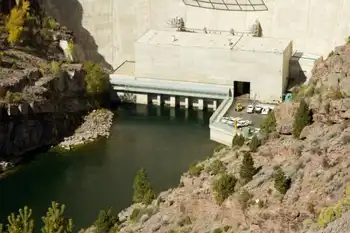
NFPA 70b Training - Electrical Maintenance
Our customized live online or in‑person group training can be delivered to your staff at your location.

- Live Online
- 12 hours Instructor-led
- Group Training Available
Hydropower Covid-19 Resilience highlights clean, reliable energy and flexible grid services, with pumped storage, automation, and affordability supporting climate action, decarbonization, and recovery through sustainable infrastructure, policy incentives, and capacity upgrades.
Key Points
Hydropower Covid-19 Resilience is the sector's ability to ensure clean, reliable, flexible power during crises.
✅ Record 4,306 TWh in 2019, avoiding 80-100 Mt CO2e emissions.
✅ 1,308 GW installed; 15.6 GW added; flexibility and storage in demand.
✅ Policy, tax incentives, and fast-track approvals to spur projects.
The Covid-19 pandemic has underlined hydropower's resilience and critical role in delivering clean, reliable and affordable energy, especially in times of crisis, as highlighted by IAEA lessons for low-carbon electricity. This is the conclusion of two new reports published by the International Hydropower Association (IHA).
The 2020 Hydropower Status Report presents latest worldwide installed capacity and generation data, showcasing the sector's contribution to global carbon reduction efforts, with low-emissions sources projected to cover almost all demand increases in the next three years. It is published alongside a Covid-19 policy paper featuring recommendations for governments, financial institutions and industry to respond to the current health and economic crisis.
"Preventing an emergency is far better than responding to one," says Roger Gill, President of IHA, highlighting the need to incentivise investments in renewable infrastructure, a view echoed by Fatih Birol during the crisis. "The events of the past few months must be a catalyst for stronger climate action, including greater development of sustainable hydropower."
Now in its seventh edition, the Hydropower Status Report shows electricity generation hit a record 4,306 terawatt hours (TWh) in 2019, the single greatest contribution from a renewable energy source in history, aligning with the outlook that renewables to surpass coal by 2025.
The annual rise of 2.5 per cent (106 TWh) in hydroelectric generation - equivalent to the entire electricity consumption of Pakistan - helped to avoid an estimated additional 80-100 million metric tonnes of greenhouse gases being emitted last year.
The report also highlights:
* Global hydropower installed capacity reached 1,308 gigawatts (GW) in 2019, as 50 countries completed greenfield and upgrade projects, including pumped storage and repowering old dams in some regions.
* A total of 15.6 GW in installed capacity was added in 2019, down on the 21.8 GW recorded in 2018. This represents a rise of 1.2 per cent, which is below the estimated 2.0 per cent growth rate required for the world to meet Paris Agreement carbon reduction targets.
* India has overtaken Japan as the fifth largest world hydropower producer with its total installed capacity now standing at over 50 GW. The countries with the highest increases in were Brazil (4.92 GW), China (4.17 GW) and Laos (1.89 GW).
* Hydropower's flexibility services have been in high demand during the Covid-19 crisis, even as global demand dipped 15% globally, while plant operations have been less affected due to the degree of automation in modern facilities.
* Hydropower developments have not been immune to economic impacts however, with the industry facing widespread uncertainty and liquidity shortages which have put financing and refinancing of some projects at risk.
In a companion policy paper, IHA sets out the immediate impacts of the crisis on the sector, noting how European responses to Covid-19 have accelerated the electricity system transition, as well as recommendations to assist governments and financial institutions and enhance hydropower's contribution to the recovery.
The recommendations include:
- Increasing the ambition of renewable energy and climate change targets which incorporate the role of sustainable hydropower development.
- Supporting sustainable hydropower through introducing appropriate financial measures such as tax incentives to ensure viable and shovel-ready projects can commence.
- Fast-tracking planning approvals to ensure the development and modernisation of hydropower projects can commence as soon as possible, in line with internationally recognised sustainability guidelines.
- Safeguarding investment by extending deadlines for concession agreements and other awarded projects.
- Given the increasing need for long-duration energy storage such as pumped storage, working with regulators and system operators to develop appropriate compensation mechanisms for hydropower's flexibility services.





